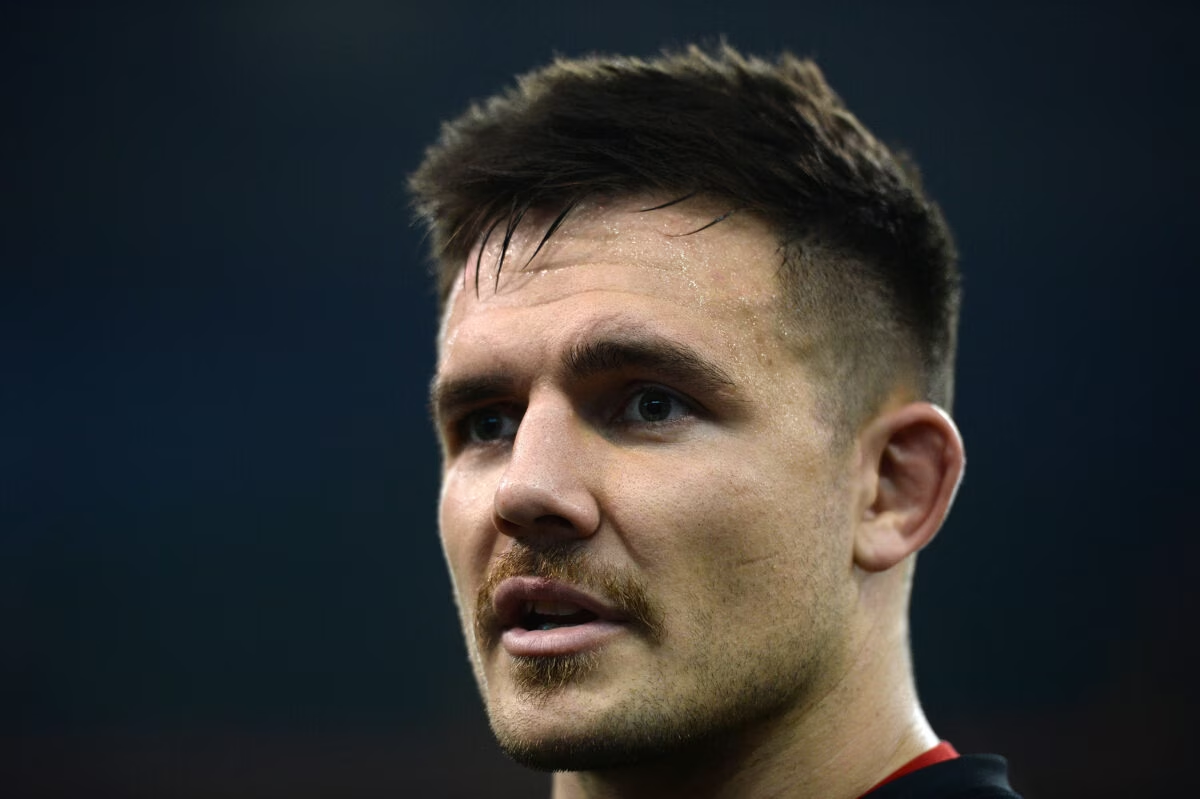Every day starts the same way for Ellis Jenkins as he continues to re-hab the knee he injured almost 18 months ago against the Springboks – with an icy cold shower.
The 27-year-old Cardiff Blues and Wales flanker is following a strict regime put in place by Robin Sowden-Taylor, head of strength and conditioning at Cardiff Blues, as he examines the effects of cold submersion on inflammation and healing.
“Every day starts with a freezing cold shower, which helps me to wake up. It helps if the weather is nice, but it’s not so nice or as much fun on a rainy November morning,” Jenkins told the ION S&C podcast.
“I’m unable, or not allowed, to run at the moment, so I’ve been hammering the Wattbike. I was set an aerobic power session the other day of 4 x 4 minutes maximum distance.
The target was to reach 3,000 metres on each rep. I ended up flat on my back on the floor for 10 minutes after I’d done it.
“It has been 17 months since the injury and it has been tough. As soon as I injured my knee I knew it was going to be a race to get fit for the World Cup.
“I had nine months, which is about the time it normally takes to overcome an ACL injury, and the surgeon told me it was a tough ask, but it could be done. I put everything into trying to make the World Cup and it went really well for the first three months.
“But then it became pretty obvious it wasn’t going to happen, so I had another operation to clear out some scar tissue. I started running and my fitness times were decent and my speed was OK, but there was still a pain I couldn’t get over.”
With no real sign of when he will be able to return to rugby, Jenkins was joined by Blues physio Gruff Parsons on a pre-lockdown trip to Philadelphia to meet world renowned sports injury specialist Bill Knowles.
He has helped athletes of the calibre of Andy Murray, Tiger Woods, Peyton Manning, Frank Lampard and Jonny Wilkinson in the past and, having not played since being voted man of the match in the win over South Africa in Cardiff on 26 November, 2018, Jenkins is desperate to get back to doing what he does best.
His frustration is exemplified by the pinned Tweet on his official Twitter site:
S*** way to end a game. I’ll be back.
“Gruff mentioned Bill Knowles to me and, just by chance, I’d watched the Andy Murray documentary on Amazon Prime in which they showed clips of him rehabbing his hip injury with Bill,” said Jenkins.
“He is a world renowned expert, but I went out to see him not really knowing what to expect. It was incredible and it was inspiring to see how he thinks and works.
“He talked a lot about respecting the healing process and also likens your body to an orchestra. If you were going to train the orchestra for six months, but leave one part out, in six months time you can’t expect that part to keep up with the rest.”
As well as working hard on the Wattbike, Jenkins has been using weights in the garden and trying to continue with his rehab work. He is the first to admit it has been difficult and he can’t wait to get back to doing what he loves – and what he does best.
“We’re used to being very structured in our day and I’m trying to keep that as much as I can in my routine and training. My rehab is still my priority at the moment,” he added.
“One day I concentrate on my rehab, the next day I do a Wattbike session and on the third day I focus on my upper body. Then I repeat that routine as often as I can.
“I’ve always been big on training and it’s keeping me sane at the moment. I’m lucky that I have a small garden with a decent set-up and it’s a bit of a sun-trap as well, so I’ve been spending as much time as I can in there.”
Jenkins also revealed how he keeps his spirits high as he attempts to battle back to match fitness. It is a fight he is refusing to give up, even though he has been trying for almost 18 months to get back onto the field.
“You have to celebrate the little victories. It is easy to watch a game and think I’d love to be back out there,” he said.
“What I’ve done is take videos or photos to see the progress I’m making. It’s very easy to compare yourself to pre-injury or pre-set back standards – in reality, you have to build yourself back up to those standards.
“You may be making great progress, but if you are comparing yourself to where you were before the injury it is always going to put a negative slant on where you are at. Keeping things in perspective has helped me a lot.
“There have been some good days and some not so good. I’m very lucky that I’ve got some good people helping me both with the Blues and Wales.
“I’ve spent a lot of time with Ryan Campbell (Blues S&C coach) and Gruff and they have both been really good to me.
“I don’t think I really appreciated how bad my injury was until later. There is a fine line between letting your body heal and pushing it to progress and adapt.
“I got it wrong a couple of times just from trying to push it too hard and putting myself back a week or two.”

